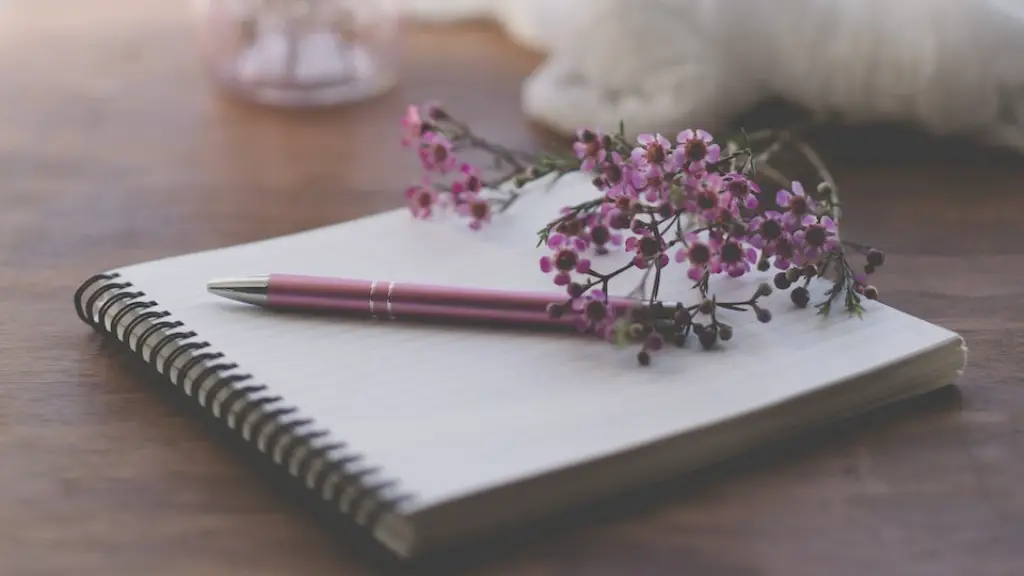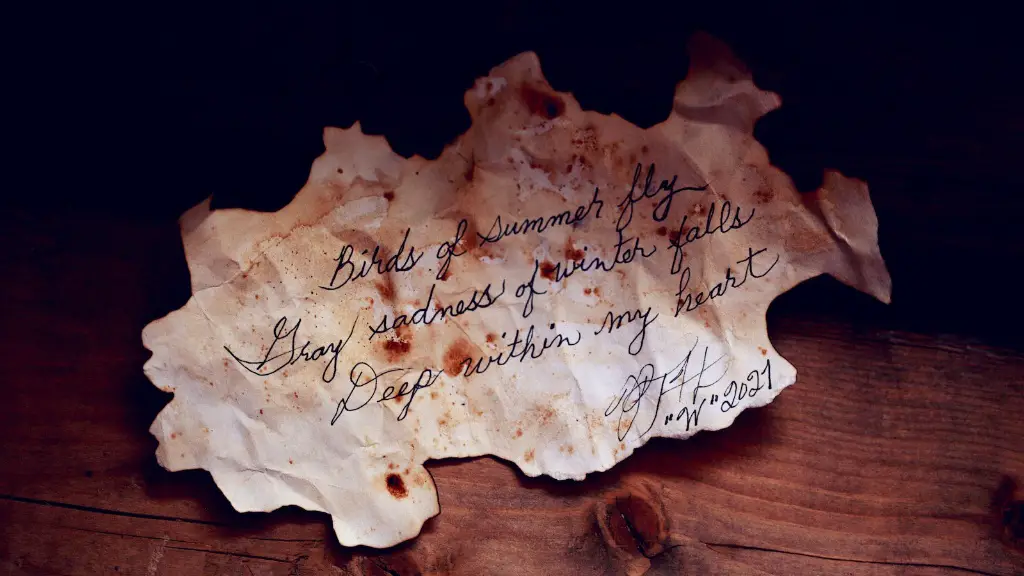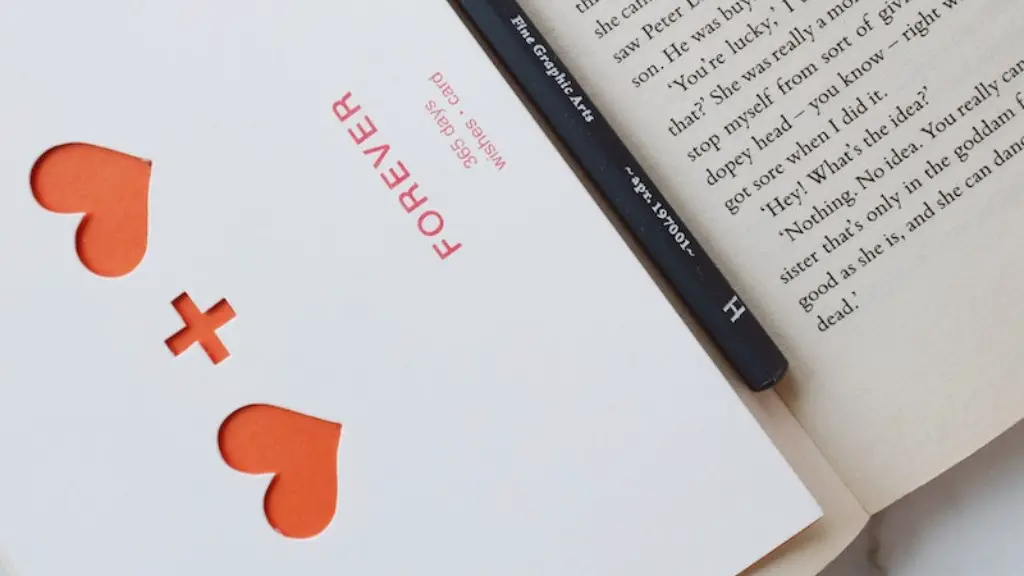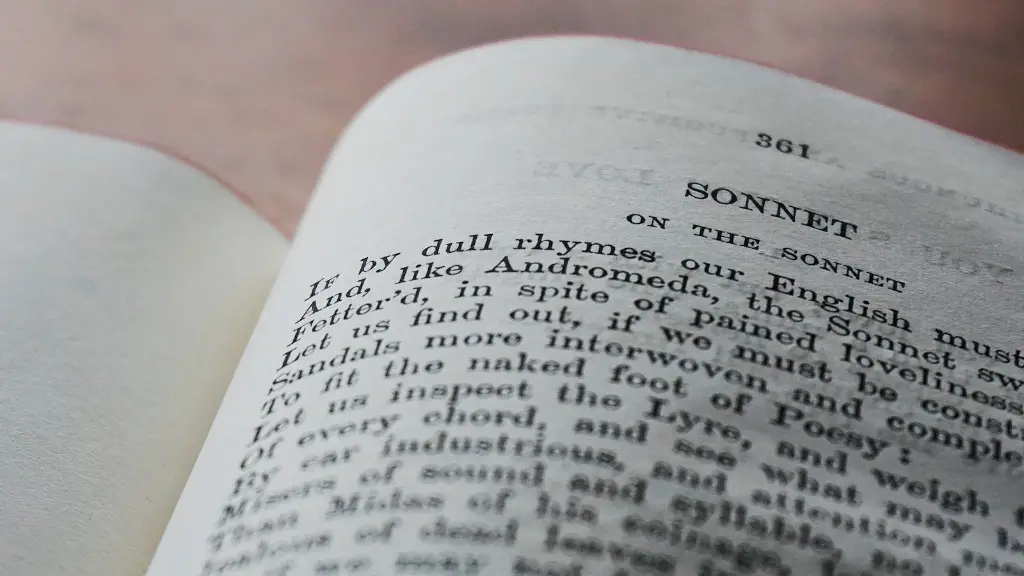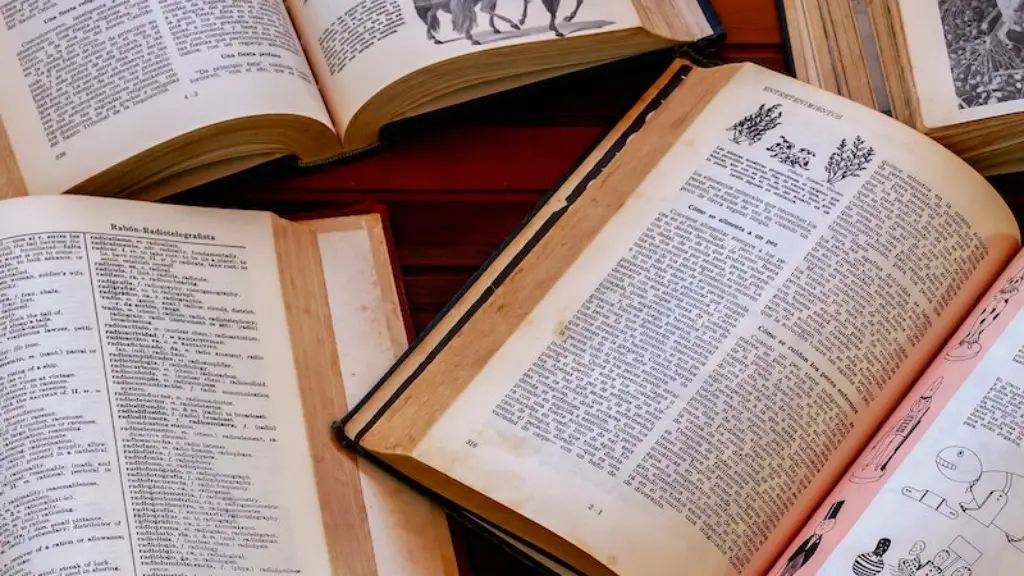What is a form of Poetry?
Poetry is an art form located at the heart of humanity’s expression of the written word. It is an ancient practice with an indelible mark in cultures stretching from the Middle East to the New World. Poetry can take on many different shapes, from sonnets to haikus, and from quatrains to limericks. The most basic form of poetry, however, is one short in nature called free verse.
Free verse relies on a lack of structure to convey meaning. It requires no particular rhyme scheme, syllable count, or meter. The poet is free to write a piece of poetry that sounds exactly as they want. This can be used to great effect when trying to express an emotion or feeling in an authentic way, as it allows the poem to fit each syllable and word to the tone.
In comparison to a more traditional form of poetry such as a sonnet or ode, free verse has a much freer structure, leaving more up to the interpretation of the reader. As the poet does not have to adhere to any particular form, they can experiment and take risks that may not yield the same results in a more structured form of poetry. This can be seen in much of the work of poets such as Wallace Stevens, William Carlos Williams, and Walt Whitman.
One of the key tenants of free verse is that it is meant to capture the rhythm of spoken language, pushing the boundaries of what would traditionally be accepted in a written form of poetic expression. This can create a tension that is both familiar and alien, allowing the poet to tap into emotions that may not be expressed otherwise. Writers such as Ezra Pound, T.S. Eliot, and Marianne Moore have used free verse to great effect, pulling the reader in and forcing them to think of things in new ways.
There are also many different techniques and tools available to free verse poets, such as enjambment, internal rhyme, and assonance, that can be used to enhance and add nuance to their poems. This can help the poet create a more interesting piece of work, as well as allow them to add texture and complexity to the meaning of their words.
What makes free verse so attractive to so many different types of poets is the freedom it gives to explore and express emotions in whatever way they deem necessary. Poetry of this type has been around for centuries, helping people tackle deep issues and hone their craft in ways that more traditionally structured forms of poetry could not. Free verse allows poets to explore their own unique voice, as well as move between different forms as the need arises.
The Benefits of Free Verse Poetry
One benefit of free verse poetry is that it offers a great way to express emotional truth. Because the structure of free verse is a lot freer than that of more traditional forms of poetry, it allows poets to capture the emotional nuance of a particular moment or feeling in a way they could not do in other, more structured forms of poetry. By tapping into this emotional truth, poets can create poems that touch the reader in a deep and profound way.
Another benefit of free verse is that it can help poets tap into their creative energies. This can be beneficial to those who are new to writing poetry or who have not written much before. As free verse relies more on instinct than structure, it allows poets to more easily create something unique and reflective of their own unique voice. Without having to worry about structure, poets can focus more on conveying their emotions and ideas in a meaningful way.
Free verse also encourages experimentation and risk-taking. As there are no strict rules to follow when it comes to free verse, poets can take risks with language and structure that they may not have taken when using a more structured form of poetry. This can be especially beneficial for those who are looking to push the boundaries of their own work and explore new ways of expressing themselves.
Finally, free verse can be used as a teaching tool. Poets who are looking to hone their craft can take advantage of free verse to practice and learn different techniques. This can be done by writing pieces of free verse and then “translating” them into different forms of poetry. This can help poets develop their skills and gain a better understanding of the various forms of poetry.
The Challenges of Free Verse Poetry
One challenge of free verse poetry is finding the right balance between structure and emotion. As free verse relies heavily on emotion to convey its meaning, it can be difficult to find the right balance between structure and emotion. Poets need to be careful to not get too carried away with the emotion and let it overshadow the poetry itself.
Another challenge is creating a sense of coherence within the poem. As there is no structure to the poem, it can be difficult to maintain a sense of consistency between the different elements. Poets must be mindful of the words they use and make sure they do not repeat themselves or lose the flow of the poem.
Free verse also requires a certain level of skill in order to be successful. Creating a piece of free verse can be more difficult than creating one in a structured form because it requires more control over the words used and how they are placed. This can be daunting for poets with no prior experience of using the form.
Finally, free verse can be difficult to present to an audience. As there is no structure to follow, it can be difficult for a poet to know how to present it in a way that captures the nuances and emotion of the piece. This can be especially difficult when dealing with a less experienced audience who may not understand the intricacies of the words and their placement.
Using Free Verse in a Performance
One of the best ways to make use of free verse in a performance is to focus on the emotion behind the words. As free verse relies heavily on emotion to convey its meaning, performing a piece in a way that emphasizes this can help the audience connect with and understand the poem better.
It is also important to make use of other techniques such as inflection and body language to give the performance more emotion and impact. Making use of movements and pauses to convey different meaning can also be effective.
When reading from the page, it is important to keep the flow of the poem and ensure that the meaning is not lost in the pacing. Practice reading the poem out loud beforehand to ensure that the pacing and delivery are just right.
Finally, it is helpful to use visuals to illustrate and reinforce the emotion behind the words. For example, using photographs or video to accompany the performance can be a powerful way to engage the audience and add more depth to the performance.
The Legacy of Free Verse
From its humble beginnings in ancient cultures, free verse has come to be a commonly used and respected form of poetry. Many renowned poets have used free verse to push the boundaries of language and expression, creating works that are able to evoke emotion and meaning in a way that no other form of poetry can.
Today, the tradition of free verse remains alive, not only in literature but also in music and film. Numerous artists have been inspired by free verse, creating works that have moved and influenced generations. Whether it is rap or spoken word, free verse continues to inspire and create works of art that will last for generations to come.
At its core, free verse is a poetic form that offers writers and poets an almost limitless space for exploration and expression. Its unique ability to capture both emotion and structure in a way that no other form can has made it an integral part of our cultural and literary heritage, and one that will continue to shape our culture for years to come.
Conclusion
With its unique blend of structure, emotion, and freedom, free verse has come to be an essential part of our literary and artistic heritage. Its flexibility and potential for experimentation has allowed poets to create works that are both powerful and meaningful, while also inspiring generations to explore and express their emotions in new and creative ways. So, whether you are a seasoned poet or just looking to start writing, free verse can be a great way to express your ideas in a way that is personal and true.

